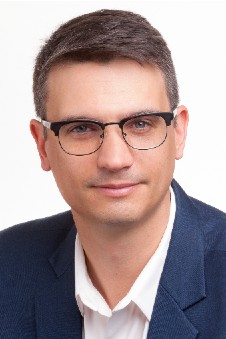
Dr Stephen Young.
Dr Stephen Young has been recognised with an Otago Early Career Award for Distinction in Research.
Since joining Te Kaupeka Tātai Ture Faculty of Law in 2019, he has produced outstanding publications, collaborated with researchers abroad and worked to facilitate research excellence within the Faculty.
On receiving this recognition, he says, “It’s wonderful, it’s really nice to be recognised for this work and to be here and be inspired by other people I am working with. This Faculty is full of people that do excellent publications and work, so I have learned a lot from them and I credit them a lot with helping flesh out ideas and inspiring me to write.”
Dr Young says he loves research, writing and digging into things. He believes the most impact he will have is with his students, and people he interacts with. His teaching subjects reflect his research interests.
He teaches Law of Torts, which he explains is “basically civil litigation issues, negligence, intentional harm, things like that”. Dr Young practised in civil litigation in the United States after graduating, and is really interested in harm and what constitutes harm.
Laws and Indigenous Peoples is another paper he teaches. This looks at how jurisdiction has developed over Indigneous peoples in several different locations. It focuses on how Indigenous peoples have been treated by the state and how have they fought back against state law, or worked with it.
“Many Indigenous peoples have been made into legal subjects and want to resist, qualify or change this in some way. That’s one of my big research topics. The areas such as the fight for emancipation through law, as well as the troubles that come along with that; it’s hard to become the subject of law, and still have a say in how those laws should actually operate - which laws pertain and which don't.”
In 2020, Dr Young’s book Indigenous Peoples, Consents and Rights- Troubling Subjects won the Law Society Association of Australia and New Zealand’s Early Career Research Award.
The third paper he teaches is International Human Rights Law, which encompasses politics and goes beyond what state law does, into what should happen in the law.
He has recently started a research collaboration to study the rise of pseudolaw and the sovereign citizen movement in Aotearoa New Zealand.
“They are working in a parallel legal universe, and it’s one that doesn’t really make sense to us, but there is I think some sort of core here where they are trying to use law to say ‘I am not really a subject’.”
He’s long held a fascination with this area. He grew up just outside Chicago, in the United States, which he sees as the origin nation of the sovereign citizen movement- and he sees this rising rapidly here in New Zealand.
“My working theory at this point is that we as a society - if we really care about legal education, there are issues out there that are not being addressed. Maybe we are not doing a good job of providing affordable legal services, or the information is behind closed doors, or maybe people are being socio-economically pinched, or criminalised and looking for ways to express discontent with the state.”
Dr Young says there are two key types of people making pseudolaw arguments - those who are issue driven, and those who are idealogically driven.
“Those that are ideologically motivated are anti-government and law. People who are issue driven may be impacted in some way, for example, COVID lockdowns for some people may have been very difficult, they may have lost their jobs, and I am very sympathetic. In terms of how to articulate dissatisfaction with that, sometimes it’s a political issue and they’ve looked to law to find ways to do that and law is a very bad medium for discussing political issues.”
Dr Young cautions courts against dismissing cases entirely without looking at the substantive argument there, as people are disenfranchised and want to understand how law actually works “and if we are doing a terrible job of explaining it that’s on us, not them”.
“So my big push is for those of us on the inside of the legal system to be very sympathetic to those who sound whacky and are trying their best because maybe they just have bad access to information – don’t throw the argument totally out the window when you first hear it, realise maybe they are going through a lot of hardship and doing their absolute best. If you don’t listen to them, they are going more from being issue driven to ideologically driven - and there’s not much you can do to bring them back.
“There’s a lot we can do to make society better through how we approach law.”
